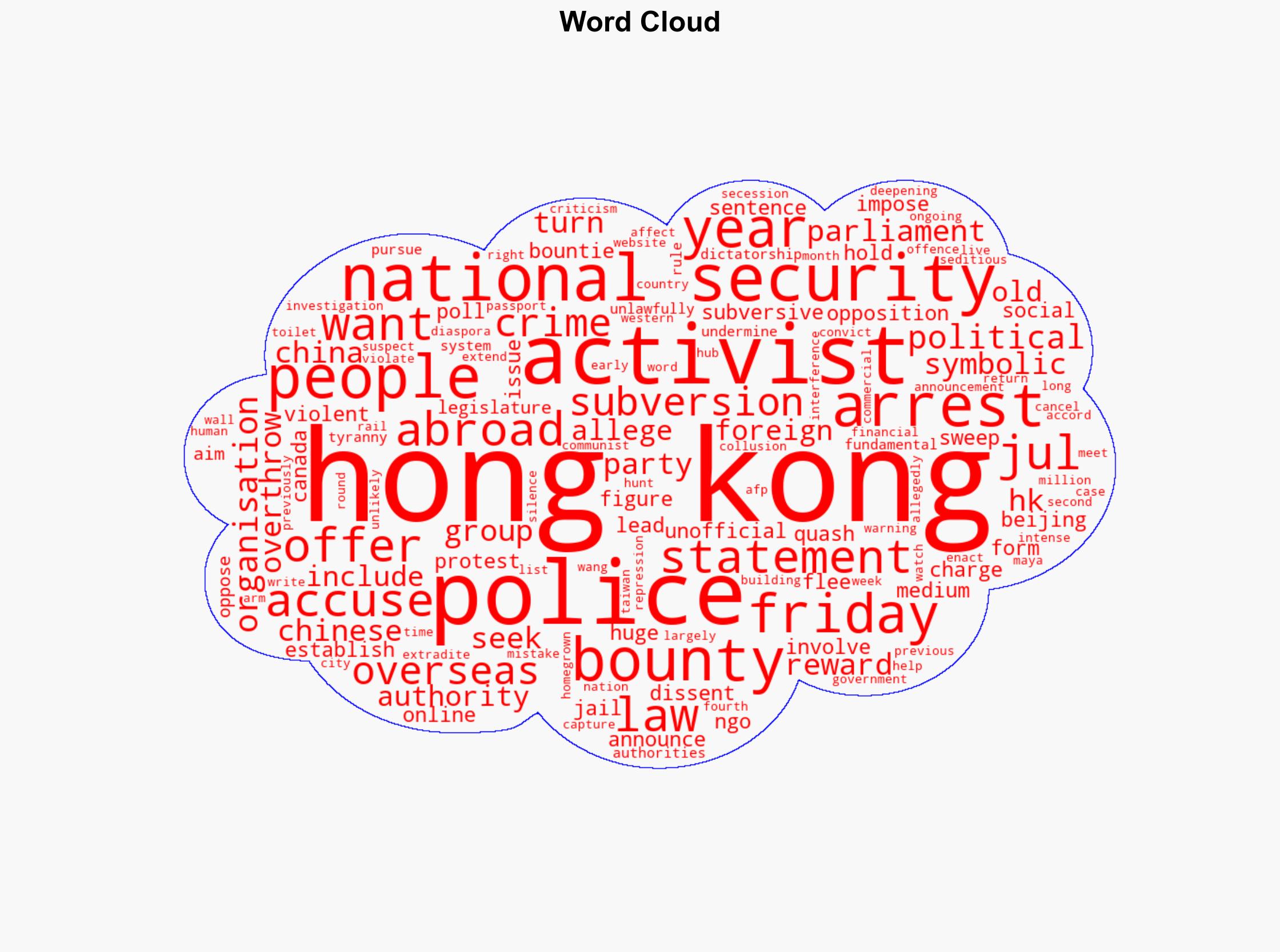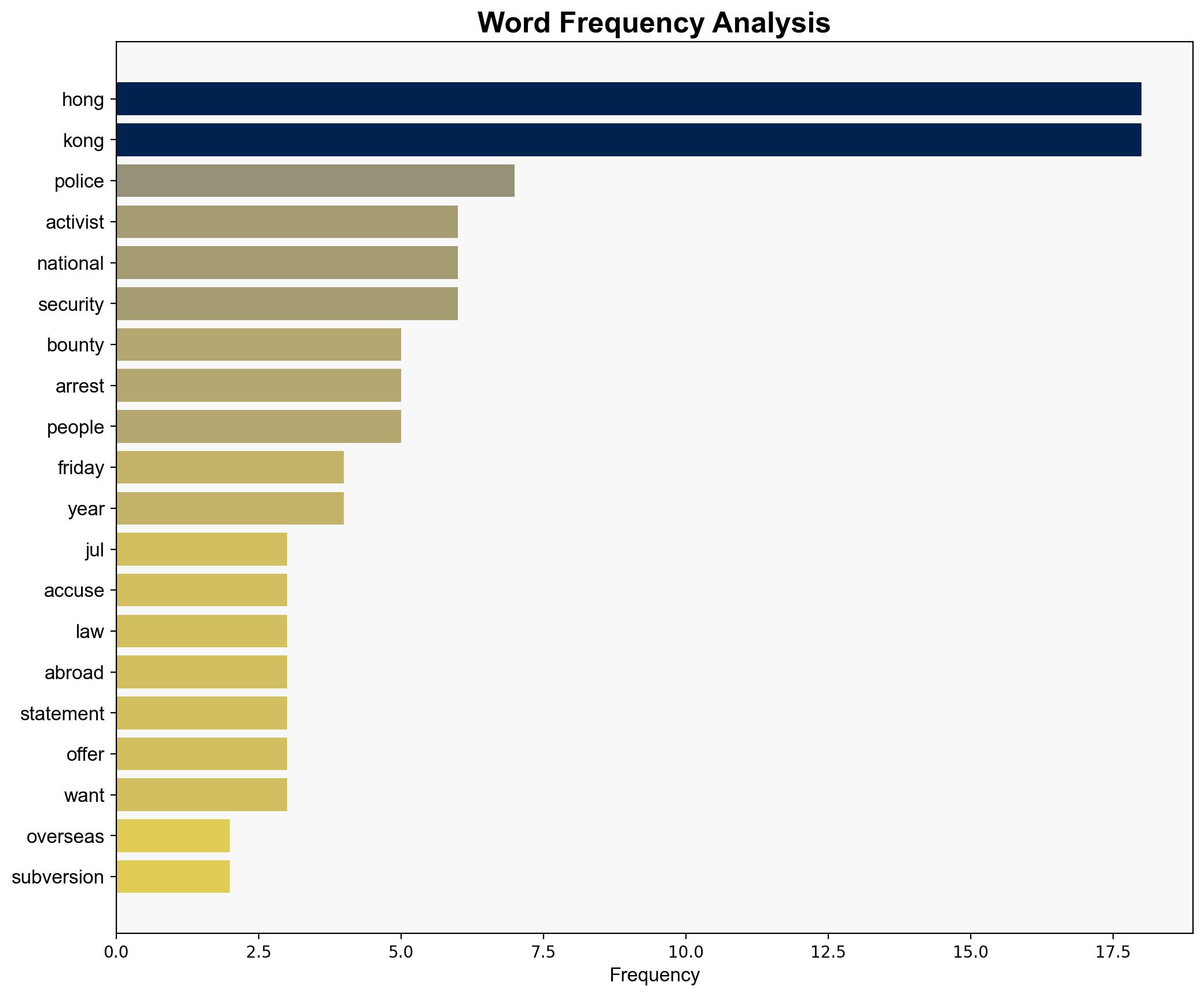Hong Kong issues bounties for 19 overseas activists on subversion charges – CNA
Published on: 2025-07-25
Intelligence Report: Hong Kong issues bounties for 19 overseas activists on subversion charges – CNA
1. BLUF (Bottom Line Up Front)
The Hong Kong government’s issuance of bounties for overseas activists is a strategic move to extend its national security law enforcement beyond its borders. The most supported hypothesis is that this action aims to deter dissent and silence opposition abroad, leveraging symbolic measures to reinforce Beijing’s control. Confidence level: Moderate. Recommended action: Monitor international responses and potential impacts on Hong Kong’s diplomatic relations.
2. Competing Hypotheses
Hypothesis 1: The bounties are primarily symbolic, intended to intimidate and deter overseas activists and their supporters, rather than to secure actual extraditions or arrests. This aligns with the historical context of Hong Kong’s national security law being used as a tool of political repression.
Hypothesis 2: The bounties are a genuine attempt to capture and prosecute activists, reflecting an escalation in Hong Kong’s enforcement strategies and a willingness to challenge international norms regarding political asylum and extradition.
3. Key Assumptions and Red Flags
Assumptions:
– Hypothesis 1 assumes that the international community will not cooperate with extradition requests.
– Hypothesis 2 assumes that Hong Kong has the capability and willingness to pursue international legal battles for extradition.
Red Flags:
– Lack of clarity on the legal mechanisms Hong Kong intends to use to pursue extradition.
– Potential overestimation of the symbolic impact of the bounties on overseas activists.
Blind Spots:
– The reaction of countries hosting these activists and their potential diplomatic repercussions.
4. Implications and Strategic Risks
The issuance of bounties could strain Hong Kong’s diplomatic relations, particularly with Western nations that may view this as an overreach of Chinese influence. There is a risk of escalating tensions between China and countries that provide asylum to these activists. Economically, this move could deter foreign investment if perceived as a sign of increasing political instability. Psychologically, it may embolden domestic opposition or conversely, suppress dissent through fear.
5. Recommendations and Outlook
- Monitor international legal responses and potential changes in extradition treaties.
- Engage in diplomatic dialogues to mitigate potential backlash and clarify Hong Kong’s intentions.
- Scenario Projections:
- Best Case: The bounties serve as a deterrent without significant international backlash.
- Worst Case: Diplomatic relations deteriorate, leading to economic sanctions or reduced foreign investment.
- Most Likely: Symbolic impact with limited practical enforcement, resulting in continued international criticism.
6. Key Individuals and Entities
– Hong Kong Police
– Human Rights Watch (Maya Wang)
– Unnamed overseas activists targeted by the bounties
7. Thematic Tags
national security threats, international relations, political repression, extradition, human rights





